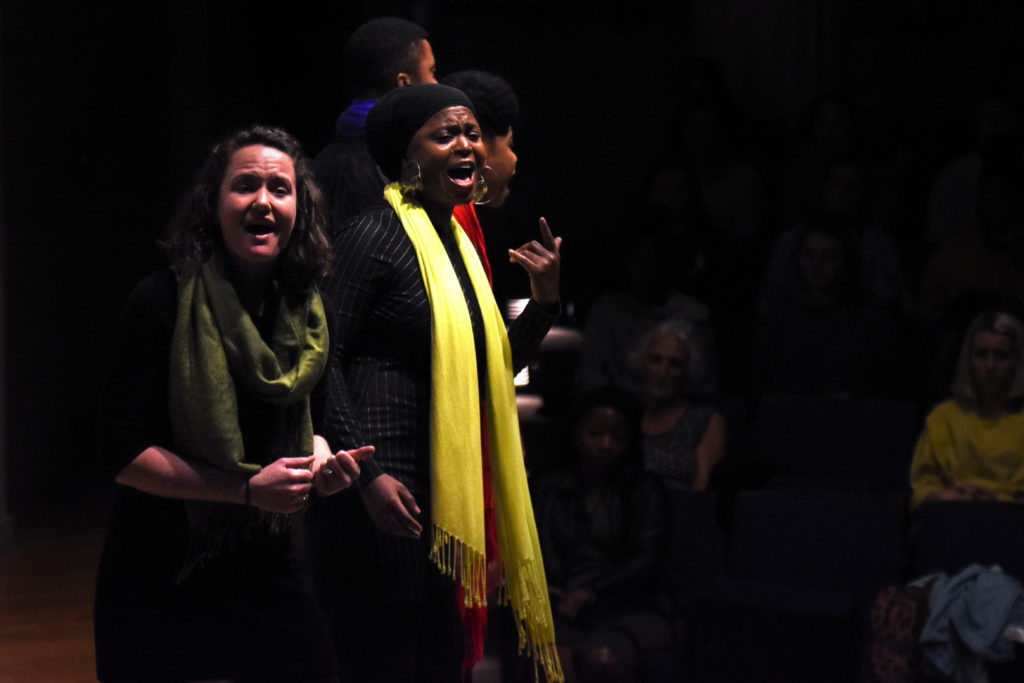A visiting professor at the Corcoran School of the Arts and Design spoke about developing theater into activism at the Flagg Building Monday night.
Cristal Truscott is a playwright, scholar, educator and the William Wilson Corcoran Visiting Professor of Community Engagement this year. Truscott’s educational theater experience, “SoulWork,” was created as a theatrical platform of social justice, diversity and acceptance.
Truscott also founded Progress Theatre, a traveling performance ensemble. Three performers from Progress Theatre, Tiana Kaye Johnson, Rebekah Stevens and Derrick Brent II, acted out scenes during the event as Truscott mentioned areas of focus within her company.
African dance, post-Civil War history and reflections on police brutality were all weaved through the reflective performances throughout the talk.
In case you missed the chance to hear Truscott discuss “SoulWork,” here are three takeaways from the event:
1. The importance of community
Truscott said she uses her own genre of singing performance, dubbed “NeoSpirituals,” in her latest project.
The performance style was born from black folklore and slave heritage, notably in the absence of a drum, she said. When reflecting on why performing a capella is important to her work, Truscott said it alludes to the community of enslaved Africans that pushed to find a voice without a musical beat to follow.
“In freedom singing, everybody sings,” she said. “The intention behind using mind, using body and using ensemble is work en masse.”
Truscott uses powerful words and a capella pieces to create a sense of community between an audience.
“Sometimes community singing is about reminding us the ways that we connect,” Truscott said. “Yet other times it’s about creating a moment that reminds people about what hurts and what needs to be heard.”
2. Working out the soul
Truscott defines her educational theater experience, “SoulWork,” as just that: work.
With “Soulwork,” Truscott said she helps actors create an engaging and honest relationship with theater based on what they feel each night before they step on stage as their characters.
“It seeks to be in a constant state of rehearsal, starting with freedom singing, soul singing, call and response, a song or a movement that can always be made anew and explored in an infinite number of ways,” Truscott said.
The other aspect of the work comes from the complexity of stories being told by the characters in every show. The company highlights pain through the narration when telling stories, she said.
To illustrate this, the a capella group sang an excerpt from Truscott’s recent play, “The Burnin’.” The performers sang about the harsh reality of police brutality in the United States and finished the song with the mantra “we ain’t gonna stop until people are free.”
3. Theater needs diversity
Truscott said theater’s most powerful purpose is to reveal the universal truth about humanity through history, song or characters in a play.
She said she works to “inspire folks beyond stereotypes” and create stories that show all sides, rather than painting an issue in black and white.
The idea of “SoulWork” is to create a voice for those who were never able to be heard, and expand the audience’s view of what they know as history, she said.
“The more meticulously that we tell multiple stories simultaneously, the more difficult it will be to live in the land of stereotype, or render folks invisible,” Truscott said.





